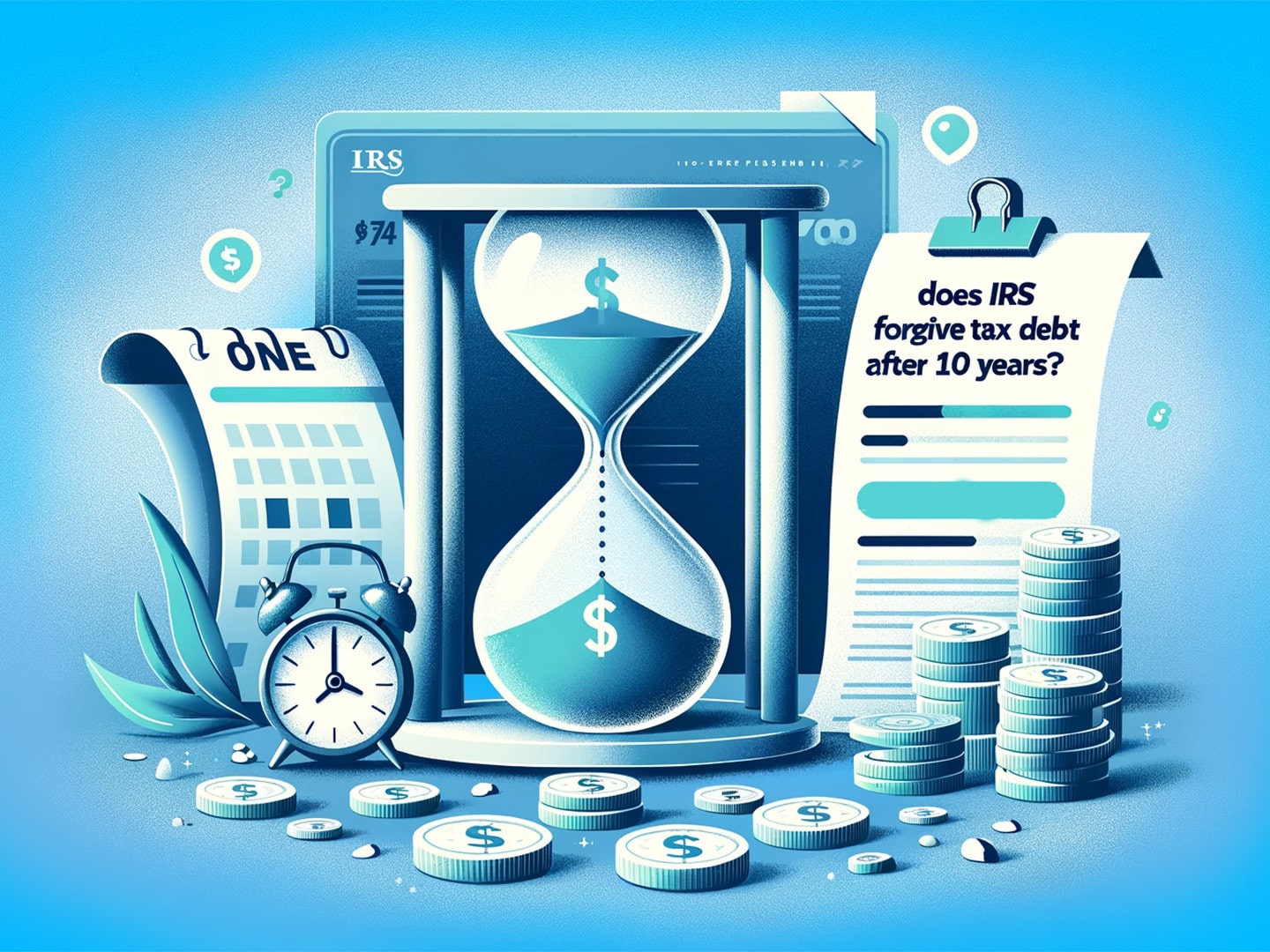Does The IRS Forgive Tax Debt From A Deceased Person? Unpacking The Truth
Detail Author:
- Name : Mae Thiel
- Username : greyson.stehr
- Email : alisa.goyette@gmail.com
- Birthdate : 2006-06-08
- Address : 3886 McClure Route Lonnyfurt, RI 84640
- Phone : +1-469-596-1846
- Company : Welch Inc
- Job : Dental Assistant
- Bio : Ab saepe maxime alias. Minus sed recusandae consequuntur quis aspernatur. Similique quis occaecati fugit nisi iure quibusdam fuga. Nesciunt consectetur expedita animi quaerat.
Socials
twitter:
- url : https://twitter.com/reingerp
- username : reingerp
- bio : Quibusdam culpa accusantium maxime aut voluptas error sapiente neque. Quisquam et et sunt quia eum quia. Earum minus ut illo ut eum enim itaque dicta.
- followers : 1704
- following : 2576
facebook:
- url : https://facebook.com/patsyreinger
- username : patsyreinger
- bio : Porro temporibus rerum odio qui non architecto.
- followers : 3711
- following : 2338
When someone dear leaves us, it's a moment filled with so much sorrow and, quite frankly, a lot of questions about what comes next. Among the many things that pop up, one thought that often weighs on people's minds is, "What about their financial responsibilities?" Specifically, does the IRS forgive tax debt from a deceased person? This is a really common concern, and it's something that can feel quite heavy during an already difficult time.
It's natural to wonder about these kinds of things, especially when you're dealing with the practicalities of a loved one's estate. The idea of inherited debt can be a bit scary, and you might be asking yourself if you or other family members could suddenly become responsible for what was owed. Well, that's what we're here to talk about today, you know, to clear up some of that confusion.
We'll look at how the government handles these situations, what steps are usually involved, and what family members can generally expect. It's important to get a clear picture of this, so you can move forward with a bit more peace of mind, or at least, a better grasp of the situation. So, let's explore this topic together, and hopefully, shed some light on what happens with tax obligations after someone passes on.
Table of Contents
- The Core Question: What Happens to Debt?
- The Role of the Estate
- Who Is Responsible? The Executor or Personal Representative
- Types of Debt and How They Are Handled
- IRS Debt: A Special Situation
- What If There Is Not Enough Money? An Insolvent Estate
- What Family Members Should Know
- Steps to Take When Someone Passes Away with Potential Tax Debt
- Common Misconceptions About Debt After Death
- Frequently Asked Questions
- Wrapping Things Up
The Core Question: What Happens to Debt?
So, does the IRS forgive tax debt from a deceased person? Well, the simple answer is that the debt doesn't just disappear into thin air. Instead, the responsibility for paying off any outstanding tax obligations, or really any debt, falls to the deceased person's estate. It's almost like the estate steps into their shoes, financially speaking, for a little while.
This means that before any assets, like money or property, are given out to heirs or beneficiaries, the estate must first settle its accounts. This includes paying off creditors, which, you know, definitely includes the IRS if taxes are owed. This process is a pretty standard part of settling someone's affairs after they've passed on.
It's important to grasp this idea, as it sets the stage for everything else that follows. Basically, the estate itself is the entity that deals with the financial loose ends, and that's where the IRS will look for any money that's due. So, it's not really about forgiveness in the way you might think, but rather a specific process for handling what's owed.
The Role of the Estate
The estate, in very simple terms, is everything a person owned at the time of their passing, along with all their financial responsibilities. This could be, like, their bank accounts, their home, their car, investments, and personal belongings. It also includes, rather significantly, any debts they had, including money owed to the tax authorities.
When someone passes, their estate goes through a process called probate, in many cases. This is a court-supervised procedure where the will is verified, the assets are gathered, debts are paid, and then what's left is distributed according to the will or state law. The estate is, in a way, a temporary legal entity created to manage these affairs.
The primary job of the estate is to make sure all legitimate claims against the deceased person's assets are satisfied. This means that if the IRS has a claim for unpaid taxes, that claim usually takes precedence over distributions to heirs. It's a bit like closing out a financial chapter, making sure all the books are balanced before the final pages are turned.
Who Is Responsible? The Executor or Personal Representative
The person in charge of managing the estate is called the executor, or sometimes, a personal representative. This individual is appointed either by the deceased person in their will or by the court if there isn't a will. Their job is, quite frankly, a big one, involving a lot of detailed work.
The executor has a legal duty to locate all of the deceased person's assets, figure out what debts are outstanding, and then pay those debts using the estate's resources. This definitely includes any tax obligations to the IRS. They also have to file any necessary tax returns for the deceased person and the estate itself.
It's important to understand that the executor is not personally responsible for paying the deceased person's debts from their own pocket. Their duty is to use the estate's funds. However, they can be held personally liable if they distribute assets to heirs before paying off creditors, including the IRS, especially if they knew about the debt. So, it's a pretty serious role, actually.
Types of Debt and How They Are Handled
Not all debts are treated the same way when it comes to an estate, you know. Understanding the different kinds of financial obligations can help clarify how they're handled after someone's passing. This distinction is quite important for the executor to grasp.
Secured Versus Unsecured Obligations
Think about it like this: some debts are "secured," meaning they're tied to a specific asset. A mortgage on a house, for example, is a secured debt. If the debt isn't paid, the lender can take the house. A car loan is another example. These kinds of obligations are usually paid off from the estate, or the asset might be sold to cover the amount owed, or a beneficiary might take over the payments.
Unsecured debts, on the other hand, are not tied to any specific property. Credit card balances, medical bills, and personal loans are typical examples of unsecured obligations. These are generally paid from the remaining estate assets after secured debts and administrative expenses, like funeral costs, are taken care of. Tax debt, particularly income tax, is often treated as an unsecured priority debt, meaning it gets paid before other unsecured creditors, but after secured debts and certain administrative costs.
The order in which debts are paid is set by state law, but federal tax claims usually have a high priority. This means that the IRS is often near the front of the line when it comes to getting paid from the estate's available funds. It's a bit of a pecking order, really, and the tax authorities are usually pretty high up there.
IRS Debt: A Special Situation
When it comes to the IRS, things can feel a little different, can't they? The government has specific rules and processes for handling tax obligations when a taxpayer has passed away. It's not just like any other bill; there are particular steps involved.
Filing the Final Tax Return
One of the first things the executor needs to do is file the deceased person's final income tax return for the year they passed away. This return covers the period from January 1st up to the date of their death. It's a bit like closing out their last financial year, even if it's a partial one.
If the person passed away early in the year, there might also be a need to file returns for previous years if those were missed or incomplete. Any taxes owed on these returns become a debt of the estate. On the flip side, if the deceased person is due a refund, that money will go to the estate, and then eventually to the heirs, after all debts are settled. So, it's not always about owing more money, sometimes it's about getting some back.
The executor is responsible for making sure these returns are accurate and filed on time. This is a critical step in settling the estate's financial picture with the government. It's, like, a fundamental part of the process.
Letting the IRS Know About a Passing
The IRS won't automatically know that someone has passed away, you know. It's up to the executor or a surviving family member to formally notify them. This is usually done by sending a copy of the death certificate along with a letter explaining the situation. It's a pretty straightforward step, but a necessary one.
It's also important to make sure the IRS has the correct contact information for the executor, so they can direct any correspondence or inquiries properly. This helps prevent delays and ensures that all official communication goes to the right person. Keeping the lines of communication open, so to speak, is really helpful here.
This notification is key because it officially alerts the IRS that the taxpayer is no longer with us and that their estate is now the entity responsible for any tax matters. It sort of shifts the focus from the individual to their financial legacy.
Understanding the "Discharge from Personal Liability"
Executors can, in a way, ask for a "discharge from personal liability" for the deceased person's income and gift taxes. This is a formal request to the IRS to audit the returns and determine the final amount of tax due. Once the IRS responds, and the executor pays that determined amount, the executor is generally relieved of personal responsibility for any further tax assessments related to those specific returns.
This process is pretty important for executors, as it offers a measure of protection. It means that once they've done their due diligence and settled with the IRS based on the official determination, they won't personally be on the hook if, say, a year later, the IRS finds another issue. It's a way of getting a final stamp of approval, you know, on the tax front.
To request this, the executor typically files Form 5495, "Request for Discharge from Personal Liability Under Internal Revenue Code (IRC) Section 6905." This form starts the clock for the IRS to act, giving the executor a clearer timeline for when they might expect a response. It's a pretty useful tool for managing risk.
Offer in Compromise (OIC) for Deceased Estates
What if the estate simply doesn't have enough money to pay the full tax debt? Well, in some situations, the estate might be able to submit an Offer in Compromise (OIC) to the IRS. This is a formal request to pay a lower amount than what's actually owed, if the estate can show that it truly can't afford the full sum.
The IRS considers several factors when evaluating an OIC from an estate, including the estate's ability to pay, the amount of equity in its assets, and its current financial situation. It's a bit like negotiating a settlement, but with the tax authorities. This isn't a guaranteed option, but it is one that's available under specific circumstances.
This process is rather complex and usually requires detailed financial documentation of the estate's assets and liabilities. It's often something that executors seek professional help with, as it involves a lot of specific rules and calculations. So, it's not a quick fix, but a potential path for some estates.
Innocent Spouse Relief for a Surviving Partner
This isn't directly about the deceased person's debt, but it's very relevant for surviving spouses. If the deceased person had tax debt from a joint return, the surviving spouse might be able to apply for "innocent spouse relief." This relief can free them from responsibility for tax, interest, and penalties on a joint tax return if their partner, the deceased, understated tax and they didn't know about it, or had no reason to know about it.
It's a way to protect a spouse who was, you know, genuinely unaware of financial missteps or inaccuracies on a shared tax form. The IRS looks at various factors, including whether the surviving spouse significantly benefited from the understated tax or whether they were coerced into signing the return. It's a pretty specific type of relief, but it can be a lifesaver for some.
This relief means that while the deceased person's estate might still be responsible for their share of the debt, the surviving spouse could be excused from their part. It's an important consideration for anyone dealing with joint tax obligations after a partner has passed. Learn more about tax relief options on our site, as there are many different avenues available.
What If There Is Not Enough Money? An Insolvent Estate
Sometimes, a deceased person's debts, including taxes, are greater than the value of their assets. When this happens, the estate is considered "insolvent." In such cases, the estate simply doesn't have enough money to pay everyone who is owed.
When an estate is insolvent, the executor must follow a specific order of priority for paying debts, as set by state and federal law. As we mentioned, federal tax claims often have a high priority, meaning they usually get paid before many other types of creditors. However, if there truly isn't enough money to cover even the priority debts, then those debts, including tax debt, may ultimately go unpaid.
It's important to stress that in these situations, family members, including heirs, are generally not personally responsible for the deceased person's debts. The debts die with the person, in a way, if the estate cannot cover them. This is a common relief for many people, as it means they won't inherit financial burdens they didn't create. So, that's usually a pretty big relief.
What Family Members Should Know
Understanding your own potential responsibility, or lack thereof, is key when dealing with a loved one's passing and their financial affairs. It's a very common source of worry, but the rules are generally quite clear.
No Personal Responsibility, Generally
For most family members, the good news is that you are not personally responsible for a deceased person's debts, including their tax debt. The debts are obligations of the estate, not of the individual heirs. This means creditors, including the IRS, cannot come after your personal assets to satisfy the deceased person's outstanding bills.
There are, however, a few exceptions. If you were a joint account holder, or if you co-signed a loan, or if you live in a community property state and the debt was incurred during the marriage, your situation might be different. But generally, if you're just an heir, you're not on the hook. That's a pretty important distinction, you know.
This principle is designed to protect individuals from inheriting financial burdens they had no part in creating. It's why the estate exists, to act as the buffer between the deceased's obligations and their living relatives. So, in most cases, you can breathe a little easier on this front.
Joint Obligations
If you shared a financial obligation with the deceased, like a joint credit card or a co-signed loan, then you remain responsible for that debt. This is because you were already a party to the agreement, not just an heir. The debt isn't solely the deceased person's in this scenario.
Similarly, if you filed a joint tax return with your deceased spouse, you are generally jointly and individually responsible for the tax due on that return. This means the IRS can come after either of you for the full amount. However, as mentioned, innocent spouse relief might be an option in certain situations. It's a very specific kind of responsibility, you see.
It's vital to review any shared accounts or loans you had with the deceased to understand your ongoing responsibilities. This is where a little bit of investigation can save a lot of potential headaches down the road. So, that's something to really keep in mind.
Community Property States and Their Rules
In community property states (Arizona, California, Idaho, Louisiana, Nevada, New Mexico, Texas, Washington, and Wisconsin), the rules regarding debt can be a bit different for married couples. Generally, debts incurred by either spouse during the marriage are considered community debts, even if only one spouse signed for them.
This means that even if a tax debt was solely in the deceased spouse's name, if it was incurred during the marriage while living in a community property state, the surviving spouse's share of the community property might be subject to the debt. It's a rather unique aspect of these particular states' laws.
It's really important for surviving spouses in these states to seek legal advice to understand how community


